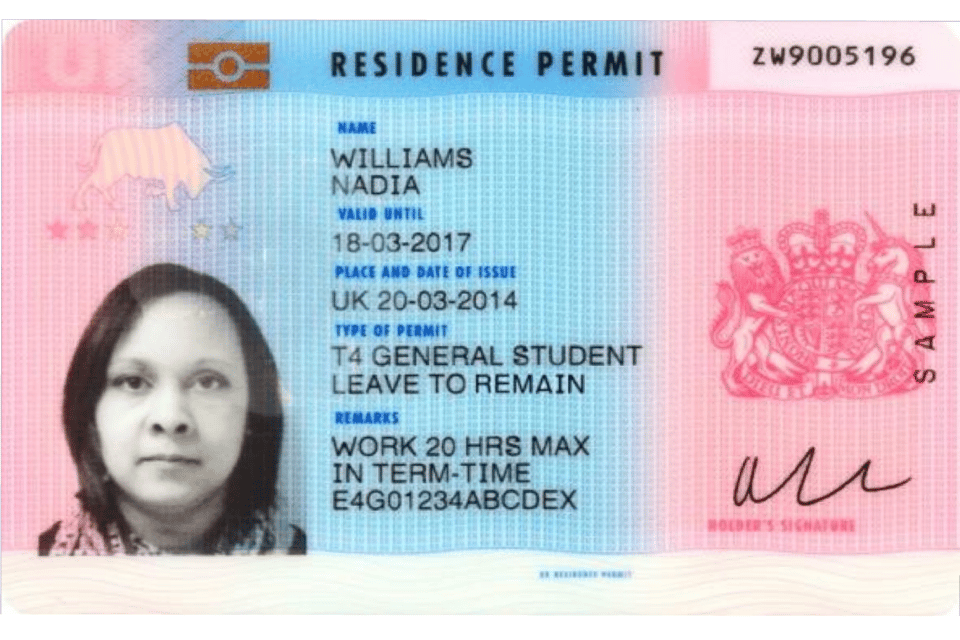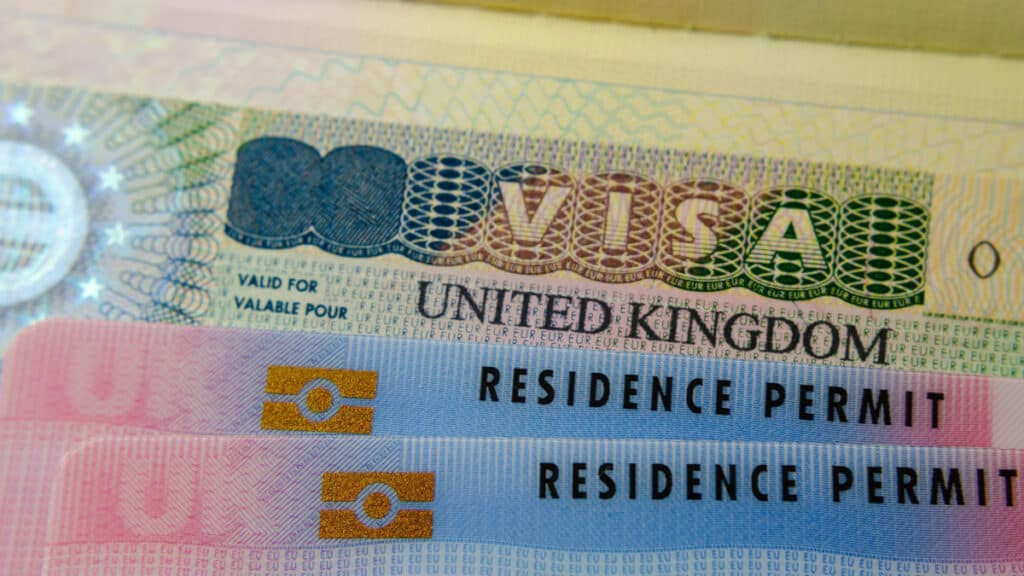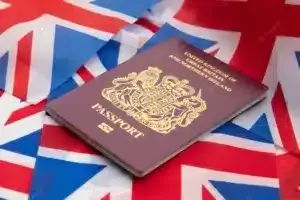UK Statutory Residence Test Explained
If you are looking to invest as an expat or high-net-worth individual, which is what I specialize in, you can email me (advice@adamfayed.com) or WhatsApp (+44-7393-450-837).
This article is not formal tax advice, and is for informational purposes only. Whilst we have done our best in terms of accuracy, the facts could have changed since we penned this article.
Table of Contents
Introduction
The following information provides an explanation of the UK Statutory Residence Test for expats.
The topic of residency is crucial for British expats or those who spend a lot of time abroad. It is no longer sufficient to simply relocate abroad in order to avoid paying UK taxes, and people who want to adopt or maintain non-resident status are now being closely inspected.
The following information is provided for general information purposes only; you should always consult a tax professional to ensure that you fully comprehend the UK Statutory Residence Test and your status as a UK tax resident.
What is UK Statutory Residence Test?
Regardless of whether a person lives in the UK or not, the UK Statutory Residence Test is the procedure used to determine the individual’s tax residence status in the UK. On April 6, 2013, HMRC rolled out the new policy.
Although difficult to understand, the UK Statutory Residence Test is crucial to determining your UK tax residence status because, if you are considered to be a resident of the UK for tax purposes, your worldwide income may be subject to UK tax, and you may incur penalties and fines for failing to properly declare and pay any income taxes.
Because the UK Statutory Residence Test is so intricate, it is always advisable to consult a tax expert who has experience accurately determining your residency status for professional advice. Official information on UK Statutory Residence Test can be found on HMRC website here.

Key Components of UK Statutory Residence Test
The UK Statutory Residence Test has four key components:
- How long you have stayed in the UK during a tax year
- Automatic Overseas Test
- Automatic UK Tests
- Sufficient Ties Test
Simply put, if you pass the automatic overseas test but fail the automatic UK test or the Sufficient Ties Test, you will be regarded as a non-UK resident for tax purposes.
If you don’t pass the Automatic Overseas Test but pass one of the Automatic UK Tests or the Sufficient Ties Test, you will be regarded as a UK resident.
1. How to determine how long you have stayed in the UK during a tax year
To put it simply, if you spent more than 183 days in the UK during a specific tax year, you would typically be regarded as a resident of the country. But it’s not easy to figure out how many days you spent in the UK.
If you want to know if you spent a day in the UK, the HMRC has a list of requirements. The rule of thumb is that if you are in the UK at midnight on any given day, you have already spent that day there.
The deeming rule, transit days, and time spent in the UK due to exceptional circumstances are additional three conditions that must be met for this to apply.
First, the deeming rule, which considers whether you have:
- being a resident of the UK for at least one prior tax year
- three ties with the UK for the tax year
- stayed in the UK for more than 30 days without returning at night.
Even if you weren’t there when the day came to an end, the deeming rule will still change how many days you spent in the UK. You should consult a professional for accurate calculations of the number of days you have spent in the UK and whether the deeming rule applies to you.
Next, transit days. Under the UK Statutory Residence Test, transit days are typically not regarded as full days. A day when you arrived in the UK from another country while traveling to another country is known as a transit day.
You must not have done any other business while you were in the UK for it to count as a transit day, and you must depart the day after your arrival. Any additional business could be meeting with friends or holding a meeting. Dinner or breakfast alone, though, would be regarded as part of your transit.
You should get more information about your activities while you are in the UK because they might affect the number of days you actually spent there.
In addition, if you are in the UK because of extraordinary circumstances, like a bereavement, you might be given special permission to extend your stay beyond the standard 90 days.
The duration and nature of the work you did while you were there could also have an impact on how many days you spent there. factors like your workplace’s geography, your line of work, and whether the work is voluntary.
Like with all other factors, if you are unsure about how your work may affect the number of days spent in the UK, you should always seek advice.
2. The Automatic Overseas Test
If you satisfy any one of the requirements listed below for the Automatic Overseas Test, you will typically be regarded as a non-UK resident:
- Despite spending less than 16 days in the UK this tax year, you were regarded as a UK resident in one or more of the previous three tax years.
- You were a non-UK resident for the previous three tax years AND you spent less than 46 days in the UK during the tax year.
- You spend fewer than 31 days working for three hours or less per day in the UK and work full time outside of the country for less than 91 days.
You should always seek guidance when determining the amount of time spent working in/out of the UK. The duration of your official stay in the UK will depend on a variety of complex calculations and factors.
3. The Automatic Residence Test
The Automatic Residence Test should be taken into consideration if the Automatic Overseas Test is inconclusive or you fail each of its components. You will be regarded as a UK resident if you fulfill any of these conditions. Again, there are complex calculations to be done, so you should always consult with a professional before deciding on your residence status.
First, if you stay in the UK for more than 183 days during the tax year.
Second, if you reside in the UK and stay there for 91 days in a row, 30 of those days falling within the tax year. If you do not have a residence abroad or if you only visit for the allotted period of time, you will also be regarded as a resident of the UK.
Lastly, if you work continuously for 365 days in the UK with no significant breaks. But there are a lot of calculations and requirements to meet, so if you’re worried, please get some help.
4. The Sufficient Ties Test
You should think about the sufficient ties test if, after going over the results of the earlier tests, you are still unsure of your residency status.
The Sufficient Ties Test basically determines whether you have ties that would qualify you as a UK resident. Ties would consist of:
- Family Tie: whether or not minor children or a spouse/partner/common-law partner are residents of the UK
- Accommodation Tie: whether accessible housing that is available for at least 91 days and at least one night is spent there in the tax year, or if the housing is owned by a close relative, at least 16 nights there in the tax year
- Work Tie: whether a person works in the UK for more than 40 days (or for any day that they work for more than three hours in the UK).
- 90 Day Tie: if you spent more than 90 days in the UK during either of the last two tax years.
- Country Ties (applies to leavers only): whether or not the UK received more days than any other nation during the tax year
Your time in the UK over the course of the tax year will determine how many ties are necessary to establish your residency.
The following table makes this simpler, but you should seek guidance for a precise evaluation.
| Days spent in the UK in the tax year under consideration | UK ties needed to be considered a UK resident |
| 16-45 | At least four |
| 46-90 | At least three |
| 91-120 | At least two |
| Over 120 | At least one |

The UK Statutory Residence Test and Split Year
You can “split” a tax year when leaving or coming back to the UK, which is one of the most complicated aspects of the UK Statutory Residence Test.
In other words, the tax year in question will be divided into two distinct periods, one during which you were a resident of the UK and the other during which you were not.
In accordance with the rules, the tax year may be divided into eight distinct circumstances, or “cases,” each of which has its own unique requirements. The following three scenarios apply when departing the UK:
- When beginning “full-time” employment abroad
- When traveling with a partner who has begun working abroad “full time”
- When no longer owning any property in the UK and moving abroad
To ensure a clear break is made, there are strict requirements when leaving the UK. The rules are very specific, so professional advice is essential. For instance, it might seem logical to assume that leaving the UK for a job abroad would permit a breakup.
For this to apply, however, you must have been a resident of the UK for the previous year, your work abroad must be “full-time,” and any visits to the UK made after departure must not exceed the pro-rata limits.
When entering the UK, a tax year may be divided under the following conditions:
- When immigrating to the UK and making it their only residence
- Starting a “full-time” job in the UK
- When moving to the UK after finishing “full-time” work abroad
- When traveling with a partner who just arrived in the UK after a period of full-time employment abroad
- When first establishing a home in the UK
Again, professional guidance is crucial. It’s not necessary that the split in the tax year coincide with your actual arrival in the UK. Without ever having entered the UK, you might find yourself living there, for instance!
Your only residence may be in the UK if you intend to relocate there and your only overseas property is sold, leaving you vulnerable.
Understanding the UK Statutory Residence Test is crucial if you live abroad but visit the UK occasionally. To get peace of mind in this intricate area of tax planning, it is crucial to seek professional advice.
Definition of Terms Used in UK Statutory Residence Test
A closer examination of a few of the key ideas reveals some of the potential areas of complexity:
UK days: extraordinary situations
If you spend time in the UK because of “exceptional circumstances,” you may exclude up to 60 days from the calculation of your UK days.
Examples might include being suddenly unable to travel due to illness or the enactment of restrictions on international travel, such as those related to Covid-19.
Each case must be evaluated according to its unique facts and in light of HMRC’s published SRT guidance. In light of this, seeking professional counsel before attempting to rely on the exclusion is advised.
Working full-time either abroad or in the UK for the automatic tests
A person is generally regarded as working full-time if they satisfy the “sufficient hours test,” which typically entails working 35 hours per week on average over the course of 365 days without taking any “significant breaks.”
If you spend fewer than 91 days in the UK and work there for fewer than 31 days a year, you can only be considered to be working full-time abroad.
Home and Accommodation
For the purposes of SRT, the terms “home” and “accommodation” have different definitions.
A “home” can be a whole building, a section of a building, a car, a boat, or any other kind of structure. This is a serious test. In order for it to qualify as the individual’s home, HMRC guidance states that it must have a sufficient level of permanence or stability in the context of their arrangements.
In contrast to “home,” the term “accommodation” (for the accommodation tie) is used to describe a variety of dwellings, including vacation homes and short-term retreats.
For the purposes of the accommodation tie, lodging will be considered to be available during any lapse in the property’s availability of fewer than 16 days. This might catch someone going back to a hotel room or other temporary residence, for instance.
New Guidance for Statutory Residence Test due to COVID-19 Pandemic
In response to the COVID-19 pandemic, HM Revenue & Customs (HMRC) has released new guidance that modifies the Statutory Residence Test (SRT) for tax purposes.
The most recent COVID-19 guidance is likely to have an impact on taxpayers’ freedom to enter and exit the UK, which might have an impact on their eligibility for the SRT.
Taxpayer can determine their residence status for a tax year using the SRT, which went into effect in April 2013.
HMRC has confirmed what it deems to be exceptional circumstances that would permit a taxpayer to disregard up to 60 days spent in the UK for day counting purposes under the SRT. This includes a taxpayer’s location:
- a person quarantined or instructed to isolate themselves by a medical professional due to the virus in the UK;
- advised not to travel from the UK due to the virus by the official government advice;
- unable to leave the UK because international borders are closed; or
- asked to temporarily return to the UK by a job, due to the virus.
Despite the severity of the pandemic, guidance was also released earlier this year in August. However, the maximum number of days that can be ignored, currently set at 60 days, has not been increased.
The current regulations governing a “significant break” from overseas employment won’t change either, according to HMRC.
Due to COVID-19-imposed restrictions, days worked in the UK by non-residents will also not be taxed for employment income related to periods beginning from the day the non-resident intended to leave the UK and ending on the date they actually left, provided that:
- The income is taxed in the person’s country of residence, and
- The person departed the UK as soon as they were able to.
Individuals might, however, be required to provide HMRC with proof of the aforementioned. any time spent in the UK. where the individual worked longer than three hours, even though it was tax-free, it would still count toward the 30 UK workdays permitted as part of the SRT.
The day count for non-residents working on COVID-19-related activities in the UK between March 1 and June 1 has changed as a result of the Finance Act 2020. The residence test will not take into account these activities.
You must seek guidance as soon as possible if COVID-19-related changes to the SRT have an impact on you.
Pained by financial indecision? Want to invest with Adam?

Adam is an internationally recognised author on financial matters, with over 760.2 million answer views on Quora.com, a widely sold book on Amazon, and a contributor on Forbes.



